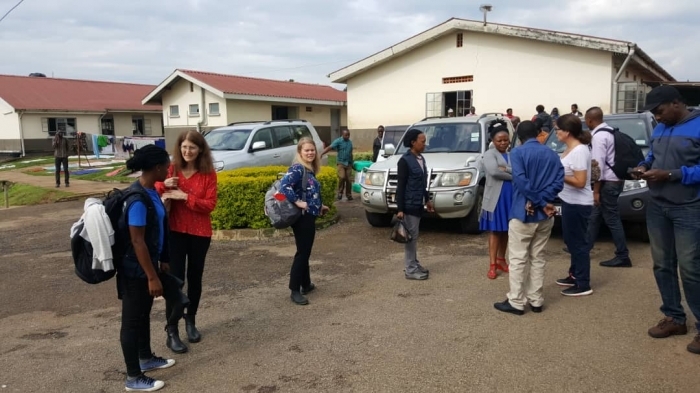Front line health workers in Uganda vaccinated against Ebola

The Ugandan Ministry of Health (MoH), with assistance from the World Health Organisation (WHO), has begun to vaccinate front line health workers in Uganda against Ebola. The vaccination process was launched today, 7th November, in the Ntorko District and will also occur in five high-risk districts that border the Democratic Republic of Congo (DRC).
The ‘rVSV- Ebola’ vaccine will be distributed to health workers to protect them against Ebola in various regions of DRC. This type of vaccine has shown potency and positive protective results against the Ebola virus-Zaire type.
Health authorities are calling for health workers to be vaccinated against Ebola before a single case is detected in Uganda to reduce fatalities if an outbreak occurs.
The ‘rVSV-Ebola’ vaccine was administered to 16,000+ volunteers participating in studies across Europe, Africa, and the United States. It was also used during the May-July 2018 Ebola outbreak in the Equateur province.
While studies have shown that the ‘rVSV-Ebola’ vaccine is protective against Ebola, scientists need to conduct further research before it can be licensed.
The Minister of Health for Uganda, Dr. Jane Ruth Aceng mentioned that the Ebola vaccine is only available for health workers who work with patients and may be at higher risk of contracting the disease.
She commented:
“The vaccine is not available to the general population at this stage. This is a targeted vaccination.”
It is possible that Ebola may travel from DRC into Uganda due to high population movements, trade, accessibility of health services, proximity to the current epicentre and social-cultural connections.
WHO has been monitoring the DRC Ebola outbreak and a few months ago scaled up its response on the Ugandan border.
Many districts are partaking in Ebola preparation activities such as the collection and testing of blood samples from alert cases; health facility and community-based surveillance; capacity building for infection protection and control, psycho-social care and clinical management.
The AIDF Africa Summit will return to Nairobi in February 2019.
If you’d like to stay informed on the latest updates in aid and development, please sign up for the AIDF newsletter.
Photo Credit: WHO















